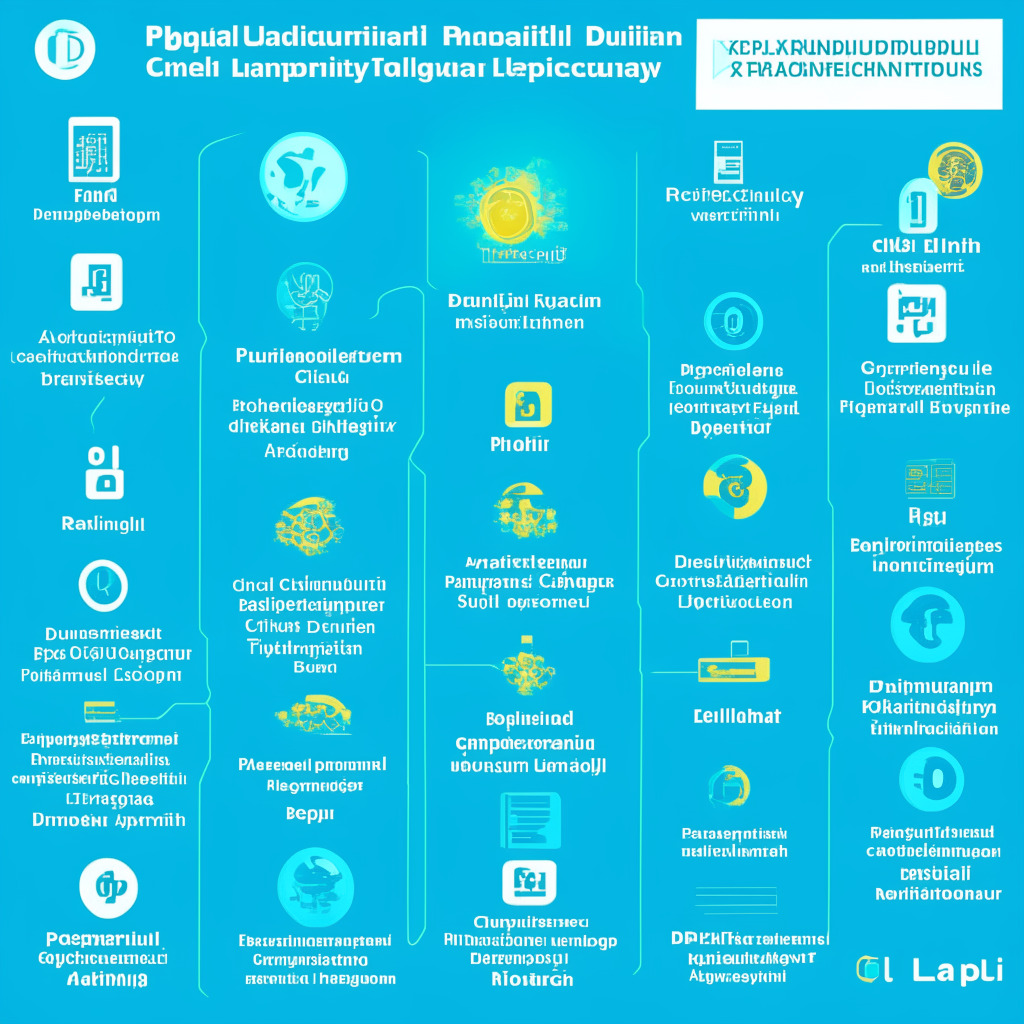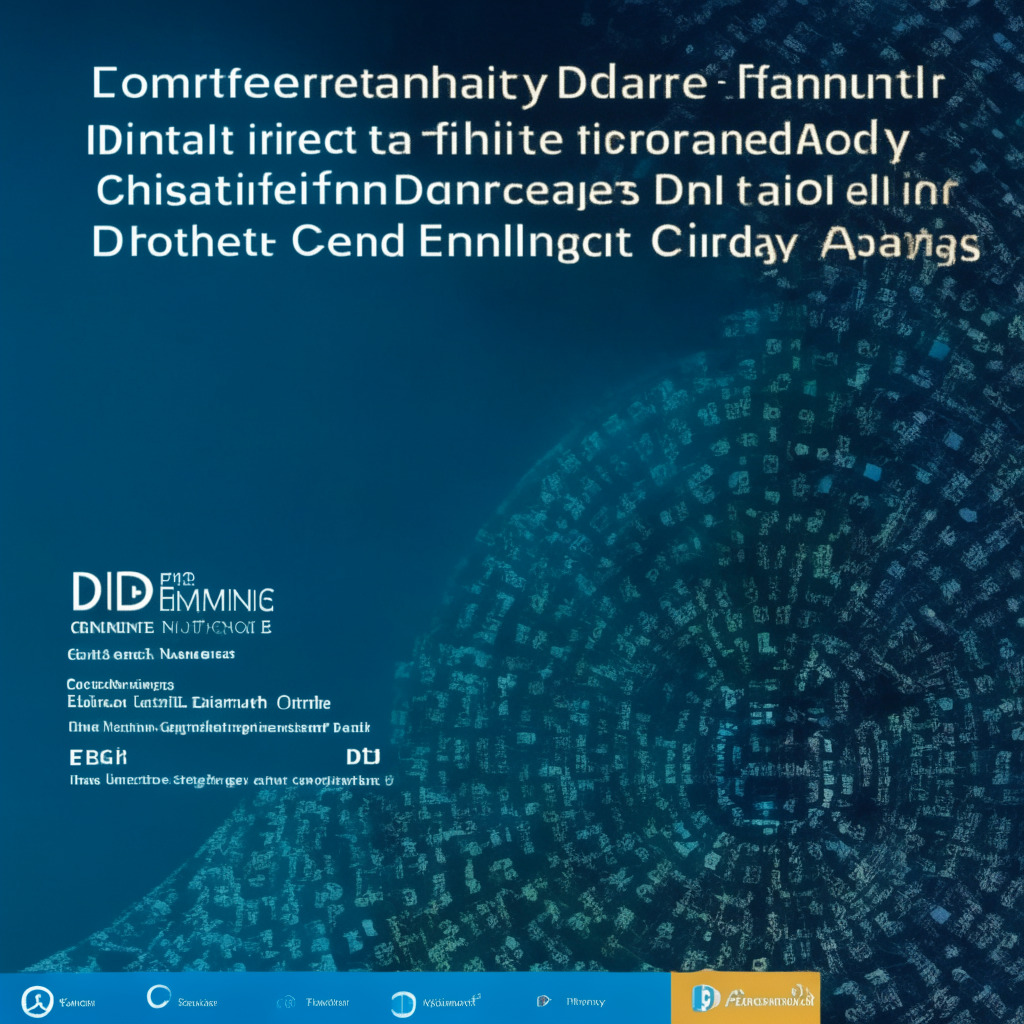Ripple acquires Swiss custodian Metaco for $250 million to transform the cross-border payment market and explore Central Bank Digital Currencies and tokenized assets. This deal, amid evolving regulations and emerging opportunities, signifies an exciting time for blending traditional finance with the crypto landscape.
Search Results for: CBDC
Westpac’s Crypto Blockade vs Binance: Impact on Aussie Users and CBDC Developments
Australian bank Westpac banned customers from transferring funds to Binance exchange to reduce scam-related losses, impacting Binance’s Australian users. Binance Australia also temporarily halted AUD deposits due to a decision by their third-party payment service provider.
Ripple CBDC Platform: Revolutionizing Central Bank Digital Currencies or Risking Control?
Ripple is launching a unique platform for central bank digital currencies (CBDCs), empowering governments and financial institutions to design and develop digital currencies with ease. Leveraging Ripple’s Private Ledger, the platform enables instant settlement for domestic and cross-border payments, improving user experience in transactions.
Crypto Surge Amid US Debt-Ceiling Optimism and CBDC Developments: Analyzing the Impact
Bitcoin experiences a 3% increase amid optimism surrounding a potential US debt-ceiling deal and rallying equity markets. Ripple develops a CBDC platform enabling institutions to issue digital currencies. Meanwhile, the Bitcoin Frogs NFT collection gains traction as the most traded within 24 hours.
Ripple CBDC Platform: Revolutionizing Digital Currencies or Leaving Some Behind?
Ripple unveils the Ripple CBDC Platform, an end-to-end solution for issuing central bank digital currencies (CBDCs). Aimed at enhancing financial inclusion and minimizing risk, the platform leverages XRP Ledger’s blockchain technology for efficient management and customization of fiat-based CBDCs.
Ripple’s Role in e-HKD CBDC Pilot: Balancing Innovation and Regulation
Ripple is participating in the Hong Kong Monetary Authority’s (HKMA) digital Hong Kong dollar (e-HKD) central bank digital currency (CBDC) pilot program, showcasing a real estate asset tokenization solution and revealing a new CBDC platform. In collaboration with Taiwan’s Fubon Bank, Ripple aims to streamline equity release processes and encourage wider use of digital currencies.
Ripple’s CBDC Platform: Pioneering Digital Currency for Central Banks & Challenging Traditional Finance
Ripple is developing a platform for central banks, governments, and financial institutions to issue their own central bank digital currency (CBDC), offering benefits like minting, distribution, and accessibility in areas with limited internet connectivity. The platform will be tested within the e-HKD pilot program, highlighting its real-world potential and versatility.
First eAUD Foreign Exchange Transaction: Future of CBDCs and Pros-Cons Debate
Australia successfully completed its first foreign exchange transaction using eAUD, marking a milestone in the country’s central bank digital currency (CBDC) development. The eAUD transaction showcased quicker settlement and potential benefits over traditional FX, remittance networks, and fiat currencies. The ongoing pilot explores various eAUD use-cases, driving the world closer to CBDC integration in financial systems.
U.S. States Battle Over CBDCs: Privacy Fears, Rising Tension, and a Divided Future
Florida recently banned central bank digital currencies (CBDCs), sparking interest from states such as Louisiana, Alabama, Texas, and North Dakota who also drafted opposition bills. Privacy concerns, government control, and individual freedom are key factors contributing to the contentious debate on CBDCs in the US.
Samsung & BOK Collaboration: A Leap in Offline CBDC Transactions and its Challenges
Samsung Electronics and the Bank of Korea (BOK) partnered to research Central Bank Digital Currency (CBDC) technology, aiming to enable offline transactions and eliminate reliance on the internet. This collaboration is a significant step towards global offline CBDC technology development and can reshape the future of financial transactions.
CBDCs: A Solution in Search of a Problem or Financial Revolution? The Ongoing Debate
Minneapolis Federal Reserve Bank President Neel Kashkari expressed skepticism about central bank digital currencies (CBDCs), questioning the problems they solve and their advantages over existing systems. Despite his doubts, Kashkari remains open-minded as he awaits ongoing study results on CBDCs. This debate illustrates the lack of consensus on CBDC benefits and drawbacks in the ever-changing financial landscape.
G7 Committee’s CBDC Support: Exploring Pros, Cons, and Global Implications
The G7 committee discussed central bank digital currencies (CBDCs) and cryptocurrency asset transfer regulations, emphasizing the need for transparency, rule of law, sound economic governance, cybersecurity, and data protection. They welcomed the IMF’s ongoing work on a CBDC Handbook and acknowledged potential drawbacks, such as privacy concerns and increased centralization.
Samsung Partners with BOK on CBDC Research: Pros, Cons and Impact on Crypto Regulation
Samsung Electronics partners with South Korea’s central bank for research on central bank digital currency (CBDC) offline payments. Meanwhile, the US DOJ’s National Cryptocurrency Enforcement Team targets illicit crypto activities, and KuCoin Pool launches Litecoin and Dogecoin joint mining services.
Samsung and Bank of Korea: Pioneering Offline CBDC Technology and its Implications
Samsung Electronics partners with the Bank of Korea to conduct research and develop an ecosystem for a Central Bank Digital Currency (CBDC). They aim to collaborate in the offline payment sector and expand the global growth of offline CBDC technology, enabling secure and device-to-device transactions through near-field communication.
Samsung and Bank of Korea Join Forces to Revolutionize Offline CBDC Payments
Samsung Electronics and the Bank of Korea have partnered to develop offline central bank digital currency (CBDC) technology, aiming to eliminate internet dependency for seamless offline payments. The collaboration will conduct joint research, focusing on enhancing security and minimizing threats in offline payments using NFC-enabled Samsung Galaxy devices.
Samsung and Bank of Korea’s CBDC Offline Payments: Pros, Cons, and the Centralization Debate
Samsung Electronics and the Bank of Korea’s joint research initiative aims to implement central bank digital currency (CBDC) based offline payments on Samsung Galaxy devices. This development seeks to reduce card and cash payments while addressing security issues, network connectivity challenges, and promoting financial stability. However, the crypto community raises concerns about potential financial surveillance and increased centralization.
Samsung and BOK’s CBDC Collaboration: Advancements, Challenges, and Security Concerns
Samsung Electronics partners with South Korea’s central bank, Bank of Korea, to explore central bank digital currency (CBDC) for offline payments via NFC on Samsung devices, advancing global offline CBDC technology amid challenges and security concerns.
Pepe Meme Controversy Triggers Coinbase Boycott, Florida’s CBDC Restrictions, and Scam Alerts
An email controversy involving Coinbase and Pepe the Frog meme has led to backlash and apology from the platform’s chief legal officer. Meanwhile, Florida restricts central bank digital currencies use, and Kraken crypto exchange uses “scam baiting” to flag malicious wallets. Caution is urged in the volatile Pepe memecoin market.
Florida Bans CBDCs: A Stand for Privacy and Financial Independence or Hindrance to Progress?
Florida Governor Ron DeSantis signed a bill prohibiting central bank digital currencies (CBDCs) in Florida, citing concerns about privacy, financial independence, and potential misuse for control and surveillance. The decision highlights essential questions about digital currencies and their impact on individual freedom and autonomy.
Florida’s CBDC Ban: Protecting Privacy or Stifling Innovation? The Great Divide Explained
Florida Governor Ron DeSantis recently signed a bill barring the use of centralized digital dollars, intensifying the state’s opposition to central bank digital currencies (CBDCs). The move reflects the ongoing debate between supporters of cryptocurrencies and proponents of CBDCs, with concerns about government control, privacy, and financial inclusion shaping the future of digital assets.
Biden’s Federal Reserve Nominations: How They Could Shape the US Crypto Future and CBDC Debate
President Joe Biden nominates economist Philip Jefferson and former chief economist Adriana Kugler for critical roles in the Federal Reserve, impacting the U.S. government’s approach to cryptocurrencies, blockchain technology, and the potential introduction of a central bank digital currency (CBDC).
Florida’s Anti-CBDC Bill: Protecting Financial Stability or Stifling Innovation?
Florida Governor Ron DeSantis signed a bill restricting central bank digital currencies (CBDCs) use in the state, stirring heated debates. Critics argue it restricts innovation and impedes competitiveness, while supporters claim it protects Florida’s financial system from potential risks associated with CBDCs.
Florida Bans CBDCs: Protecting Privacy or Hindering Technological Progress?
Florida Governor Ron DeSantis has officially banned Central Bank Digital Currencies (CBDCs) within the state, protecting residents from a potential Federal Reserve-issued digital currency. Critics argue CBDCs offer transparency and reduced costs but DeSantis claims they’re about “surveillance and control.” The decision’s broader implications on the crypto landscape remain uncertain.
Unlocking the Potential of Offline CBDCs: Balancing Privacy, Security, and Financial Inclusion
The BIS Innovation Hub has published a handbook to assist central banks in implementing offline CBDC technology, aiming to advise on security measures, risks, privacy considerations, and resilience options. The guide highlights the potential benefits of enabling offline use for CBDCs in achieving public policy objectives aligned with central banks’ mandates.
Exploring Offline CBDC Payments: Balancing Privacy, Fraud, and Accessibility
The Bank for International Settlements (BIS) explores offline central bank digital currency (CBDC) payments and their potential risks, including counterfeit threats and privacy issues, in a collaborative project with Consult Hyperion. The BIS emphasizes the importance of interoperability, risk management systems, and collaboration between public and private sectors for secure and reliable digital currency environments.
Hungary’s Cautious Approach to CBDCs: Balancing Innovation, Privacy, and Financial Inclusion
The Hungarian Central Bank takes a cautious approach to central bank digital currencies (CBDCs) as it evaluates the need for a large-scale retail CBDC, considering the country’s demographics and financial inclusivity. As CBDC adoption raises privacy and financial security concerns, Hungary seeks to maintain financial stability while exploring digital currency possibilities.
Growing Uncertainty for US CBDC Future: Political Divides and Privacy Concerns at Stake
The future of Central Bank Digital Currencies (CBDC) in the US faces uncertainty due to growing bipartisan opposition, with concerns regarding increased surveillance power and privacy at the center of the conflict. The CBDC Anti-Surveillance State Act aims to enhance oversight and prohibit the Federal Reserve from issuing a CBDC.
Debating Anonymity in Digital Pounds: CBDCs vs Cryptocurrencies in the UK
At a recent Financial Times Cryptocurrency and Digital Assets Summit, Tom Mutton, the Bank of England’s head of fintech, discussed the UK’s plans for a central bank digital currency (CBDC) focusing on privacy and anonymity. While emphasizing privacy, Mutton stated that anonymity would not be intended for the digital pound and it would not be interoperable with cryptocurrencies. The Bank of England’s approach raises questions on the role of anonymity, privacy, and interoperability in the financial ecosystem.
Exploring Privacy and Fraud Prevention in Central Bank Digital Currencies (CBDCs)
Central Bank Digital Currencies (CBDCs) are gaining traction as a promising solution for financial institutions worldwide. Quant, a UK-based company, is working on CBDC development, focusing on privacy while upholding Anti-Money Laundering (AML) and Know Your Customer (KYC) measures. Collaborating with the Bank of England, the potential digital pound aims to address fraud and financial crime effectively while balancing privacy concerns.
Brazil’s CBDC Pilot: Excluding Crypto Firms Hinders Innovation and Collaboration
The Central Bank of Brazil’s exclusion of crypto-related companies from their CBDC pilot has raised concerns about favoritism towards traditional financial institutions. Critics argue that this decision suppresses potential innovation and collaboration between emerging and established financial systems, hindering integration of digital currencies in the global financial landscape.
CBDCs on the Rise: Ripple’s Future Amid XRP Lawsuit and Crypto Whales Activity
Ripple’s report predicts significant growth for Central Bank Digital Currencies (CBDCs), potentially expanding from a $100 million market today to $213 billion by 2030. As Ripple advocates for CBDCs and expands globally, it faces an ongoing legal battle with the U.S. SEC, highlighting the uncertain regulatory landscape of the digital currency industry.
Global Crypto Regulation Changes: Bans, Influencer Marketing and CBDC Prohibitions
Last week saw significant international developments in cryptocurrency regulations. Argentina’s central bank banned payment providers from offering crypto transactions, while France allowed registered crypto companies to hire influencers for advertising. Nigeria’s SEC may permit licensed exchanges to list asset-backed tokens, the US released a national standards strategy for blockchain, North Carolina prohibited CBDC payments to the state, and Montana protected crypto miners’ rights.































